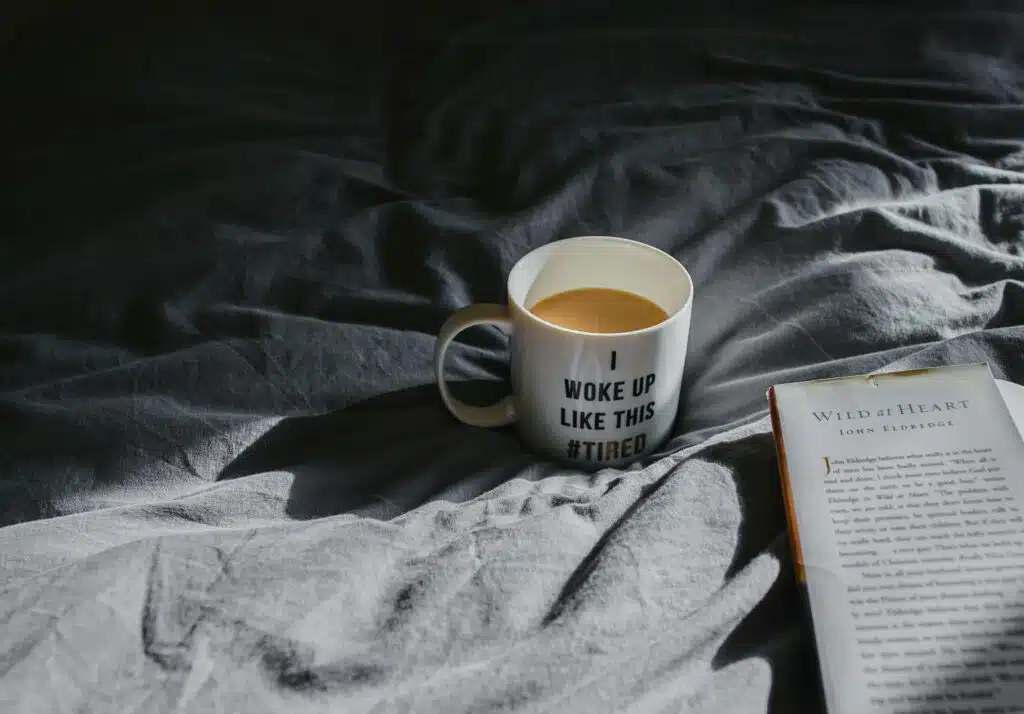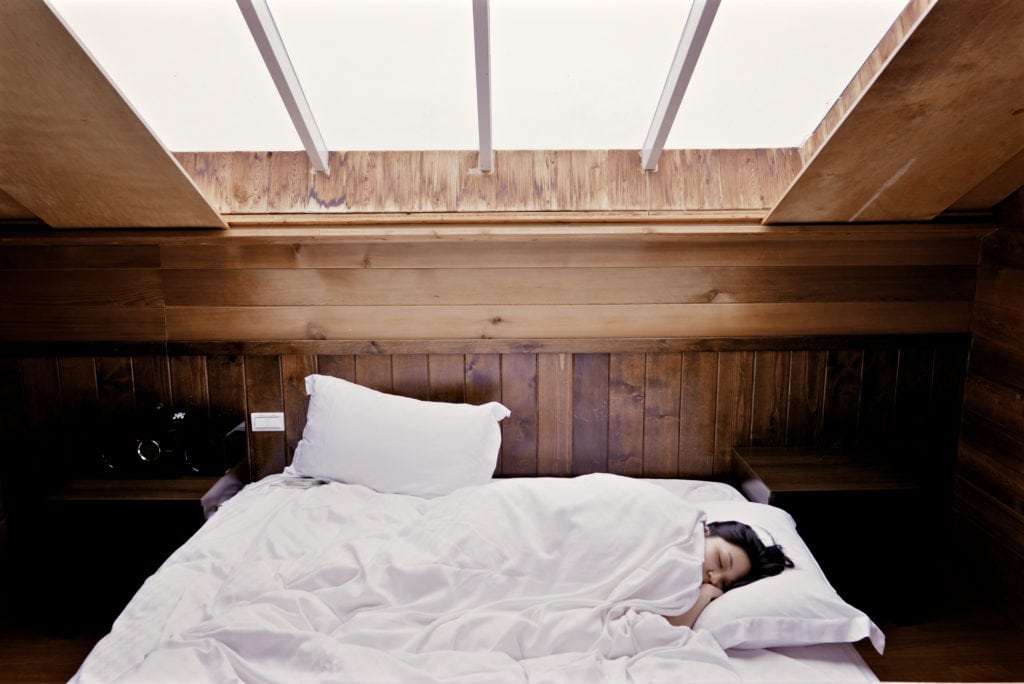
We all know by now just how important – or let’s say, absolutely essential – sleep is to our overall health and wellbeing. According to the Centers for Disease Control (CDC), the average adult needs seven or more hours of sleep per night for the best health and wellbeing. Even more specifically, adults 18-64 years of age need between seven and nine hours of sleep per night while adults 65 and older need between seven and eight. Teenagers need a bit more sleep, clocking in at eight to 10 hours each night.
Getting below the recommended number of hours of sleep per night is correlated with an increased risk of certain conditions such as diabetes, inflammation, obesity and heart disease. When you are able to hit that magic number of hours, you’ll most likely notice that your brain functions better, decisions are easier to make, increased memory function and you’ll probably just feel…better.
But for some, hitting that seven hours-plus target is a goal that is simply out of reach. Sleep problems in adults are abundant and quite common. In fact, according to the American Sleep Association, 50-70 million adults struggle with a sleep disorder. Sleep disorders groups include the following: insomnia, sleep apnea, narcolepsy, snoring, sleep deprivation, melatonin, night terrors and circadian rhythm disorders. These issues, and the specific disorders within these groupings, can all wreak havoc on the type of sleep a person will get and the amount.
This may be the reason why more people than ever are resorting to the help of medications and sleep aids to assist them in reaching that suggested window of time. With the prevalence of sleep issues and disorders, there’s a ton of different products on the market promising to help you find that magical, deep sleep that leads to increased health. But not all products are created equal.
If you’re looking for some help with your sleep, here are the best sleep aids to help you reach your nightly goal.
Table of Contents
Natural Sleep Aid #1 – Melatonin
Starting out with a well-known option, melatonin is a hormone that is naturally produced by your body. In a very simplified way, melatonin tells your brain that it’s time to go to sleep. But it’s important to note that this hormone doesn’t make you go to sleep – it simply encourages your body to get there.
The levels of melatonin in the body fluctuate depending on the time of day. At nighttime, melatonin production increases, and the hormone signals to your brain that it’s bedtime. In the morning, melatonin levels decrease and your body begins to wake.
While melatonin is a naturally-occurring hormone, it is available in supplement form for people who are looking for a little help with their sleep cycles. According to the National Institute of Health, “the use of melatonin supplements by adults in the United States more than quintupled between 1999 and 2018.” While the exact reason why people are using more melatonin than ever has not been determined, there are a number of reasons why the supplement seems to be a favorite sleep aid in today’s times.
Specifically, research has shown that melatonin can help with the effects of jetlag, delayed sleep wake disorder, some sleep disorders in children and anxiety before surgery. Anecdotally, people who engage in shift work have used melatonin to help them get quality sleep with positive results, but research on the effectiveness of melatonin for this reason has been inconclusive.
Melatonin is regarded as safe to use over the course of short periods of time. Research concerning the long-term effects of melatonin is still needed. In general, it’s recommended to take between one-half and five milligrams of the supplement per night. You should consult with your personal healthcare professional before taking melatonin. If no effects are observed after taking it for two weeks, you may want to seek help from a professional to address the root cause of the issue.
While melatonin is generally safe for adults, pregnant and nursing people should NOT use melatonin. It’s also recommended not to consume if you have an autoimmune disorder, a seizure disorder or depression.
Our recommended brand: Pure Encapsulations 3mg Melatonin
Natural Sleep Aid #2 – Magnesium
Magnesium is a micronutrient that is absolutely essential for our body. In fact, this small, but mighty, compound is involved in over 300 of our body’s natural functions. It’s hardly a surprise, then, that magnesium can have a positive impact on the quality of sleep you are able to get each night. It is also a great alternative for people who may not want or be able to consume melatonin.
While research is still determining how exactly this works, scientists do know that insufficient magnesium levels in your body can negatively impact your sleep. Low magnesium levels are correlated with the sleep disorder known as insomnia. People who suffer from insomnia may have trouble falling asleep, staying asleep or getting high-quality sleep. Research has shown that magnesium may help improve symptoms of insomnia.
It’s always a good idea to evaluate your diet before adding in any additional supplements. Incorporating magnesium-rich foods can greatly benefit your health and can be relatively easy to do without spending a bunch of extra money on new supplements.
But sometimes, we need a little extra help or extra dose of magnesium to get the desired effects of relaxation and calm. That’s where a high-quality supplement can come in handy. Please consult with your doctor before incorporating anything new to ensure that it will work for your body.
Our recommended brand: IMPOSSIBLE SLEEP
Natural Sleep Aid #3 – Valerian Root
Valerian root is, just that, a root from the plant from the Valerianaceae family. It is commonly used as a natural alternative to prescribed sleep medications. According to Mount Sanai’s Health Library, “Scientists aren’t sure how valerian works, but they believe it increases the amount of a chemical called gamma aminobutyric acid (GABA) in the brain.” GABA is a compound that helps us feel calm during moments of excitability.
Valerian root purportedly helps with sleep conditions such as insomnia, but a study noted that the supplement may need to be consumed for a few weeks before a noticeable impact has occurred. Others have reported that they notice immediate effects. And finally, one review found that valerian had no effect on sleep.
You can easily find valerian root in capsule form online or at grocery or health food stores. Valerian root is also available as a tincture, tea or in powdered form. It is best to consult with your doctor or healthcare professional to determine if valerian root might be the correct supplement for you.
Our recommended brand: NOW Supplements, Valerian Root
Natural Sleep Aid #4 – Lavender Essential Oil
We would be remiss if we did not include lavender on this list of the best natural sleep aids. The thing that makes lavender stick out from the rest of these supplement recommendations is that you’re not going to actually ingest this one. Instead, lavender oil is used for aromatherapy purposes.
Smelling the fragrance of lavender oil shortly before sleep was reported to help improve sleep quality in a small group of college aged students. Another study found that the scent of lavender oil helped increase sleep quality in a small study group as well.
To reap the benefits of lavender oil, we recommend using the oil in an oil diffuser (which you can easily buy on Amazon or at some grocery or health stores). Mix a few drops of the oil with water and then run your diffuser at night so the oil permeates through the air. Some people also like to apply lotion or salves infused with lavender oil on their body before sleeping to get that same effect.
Do not – we repeat – DO NOT try to ingest the lavender oil or any essential oil for that matter. It should be used for aromatherapy purposes only.
Our recommended brand: DoTerra Lavender Essential Oil
It’s Time to Get More Sleep

We probably all need to do a better job at getting a bit more sleep. It’s important to note that, before starting any sleep aid, you should make sure that your sleep hygiene is the best it can be. That means that you should try to avoid staring at electronics before bed and limit your caffeine intake (especially in the afternoons/evenings).
Your sleep environment is crucial too. If possible, use blackout curtains so that no outside light gets into your bedroom. If those curtains are not possible, invest in a sleep mask that covers your eyes. Keep your room at a comfortable temperature so that your body can fully relax. A white noise machine can help block out loud noises from outside of your room.
If you have tried all of these things, and you’re still having trouble getting 7-10 hours of sleep at night, then it may be time to consider one of the sleep aids mentioned above. If you’re ready for a good night’s sleep, these are the top supplements we recommend. Whether you choose to use melatonin, magnesium or valerian root, we always recommend that you check with your healthcare professional before starting any new regimen. While these are all generally thought of as safe and natural, you should always do your due diligence and check in with your doctor to ensure that there will be no contraindications.